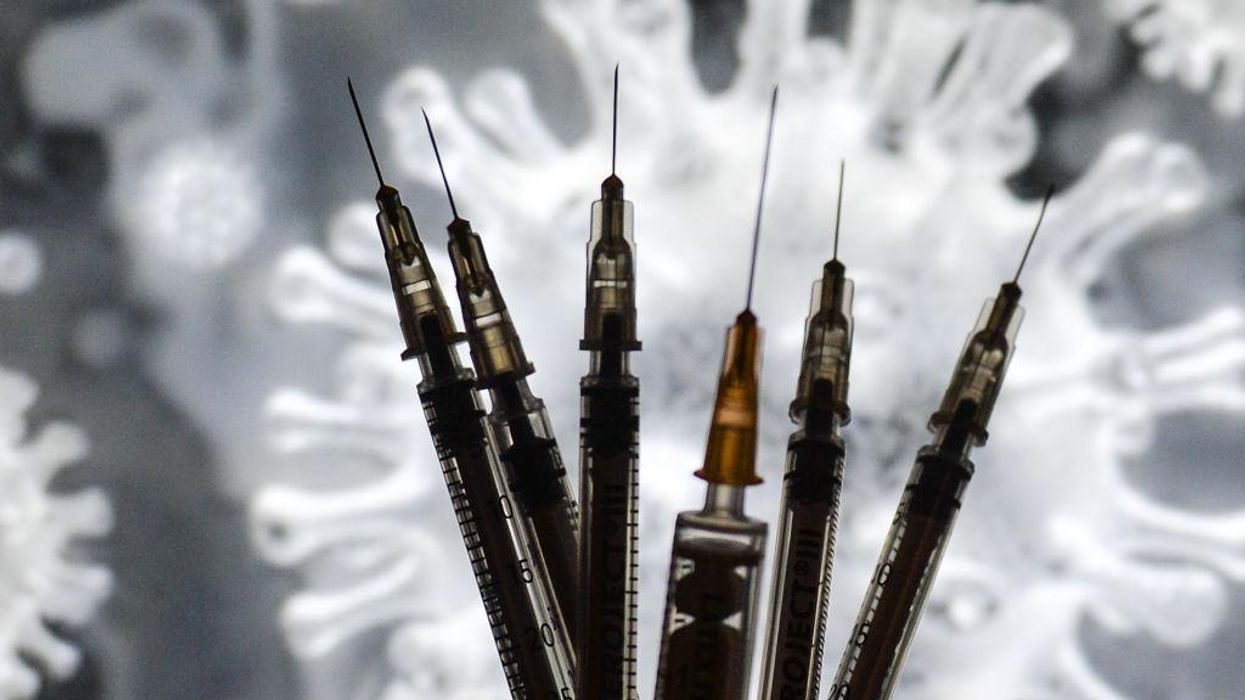
Artur Widak/NurPhoto via Getty Images

The U.S. Food and Drug Administration (FDA) issued an emergency use authorization (EUA) for the Pfizer-BioNTech COVID-19 vaccine on Dec. 11, 2020. A week later, the FDA issued an EUA for Moderna's COVID-19 vaccine. Now, nearly two years later, Pfizer and Moderna will launch clinical trials to track adverse health issues stemming from the COVID-19 vaccines, such as myocarditis – inflammation of the heart muscle.
Pfizer is in the infancy of beginning clinical trials to determine if there are any health risks associated with their own vaccine. In a partnership with the Pediatric Heart Network, the trial will focus on vaccine recipients who have suffered heart issues following being jabbed with the COVID-19 vaccine. The clinical trials will monitor patients for five years.
Enrollment for the study in the U.S. and Canada has not started yet. However, the research team has already identified more than 250 patients with myocarditis, according to Dr. Dongngan Truong – a pediatrician at the University of Utah Health and a co-lead on the Pfizer study.
NBC News reported on Friday, "The team will also compare the patients to a subset of patients with multisystem inflammatory syndrome in children, also known as MIS-C, which is associated with a COVID infection."
The first findings are not expected to be released until sometime next year.
Moderna will be conducting their own studies about possible side effects of the COVID vaccines in five countries with the assistance of the European Medicines Agency. The data from those studies are not expected to be released to the public until next summer.
Dr. Paul Burton – Moderna's chief medical officer – admitted that scientists are not certain as to what causes the possible heart issues from the COVID-19 vaccine.
“We don’t understand yet and there’s no good mechanism to explain it,” Burton conceded to NBC News.
Burton theorized that the spike protein in the vaccine may stimulate a negative reaction in the body that could cause inflammation in the heart.
NBC News highlighted the alarming struggles of one Michigan man who suffered major health issues after receiving a COVID vaccine.
In October 2021, Detroit native Da’Vion Miller was found unconscious in the bathroom of his home one week after receiving his first dose of Pfizer's COVID-19 vaccine. Miller, who was only 22 years old at the time, experienced chest pain two days after getting vaccinated. He also suffered from fatigue, dizziness, and shortness of breath.
Miller was rushed to the Henry Ford West Bloomfield Hospital, where he was diagnosed with myocarditis and pericarditis – inflammation of the outer lining of the heart.
Miller's doctor advised him not to receive his second dose of the COVID vaccine.
In the year since being diagnosed with myocarditis, Miller is still experiencing chest pain and has been in and out of the hospital.
In July 2021, the Centers for Disease Control and Prevention (CDC) released a report that stated: "An elevated risk for myocarditis among mRNA COVID-19 vaccinees has been observed, particularly in males aged 12–29 years."
The report found, "Myocarditis reporting rates were 40.6 cases per million second doses of mRNA COVID-19 vaccines administered to males aged 12−29 years."
The CDC added, "Myocarditis and pericarditis have rarely been reported. When reported, the cases have especially been in adolescents and young adult males within several days after mRNA COVID-19 vaccination (Pfizer-BioNTech or Moderna)."
In April, an Israeli large-population study of 196,992 unvaccinated adults who were post-COVID-19 infection were "not associated with either myocarditis or pericarditis."
"We did not observe an increased incidence of neither pericarditis nor myocarditis in adult patients recovering from COVID-19 infection," the authors wrote.